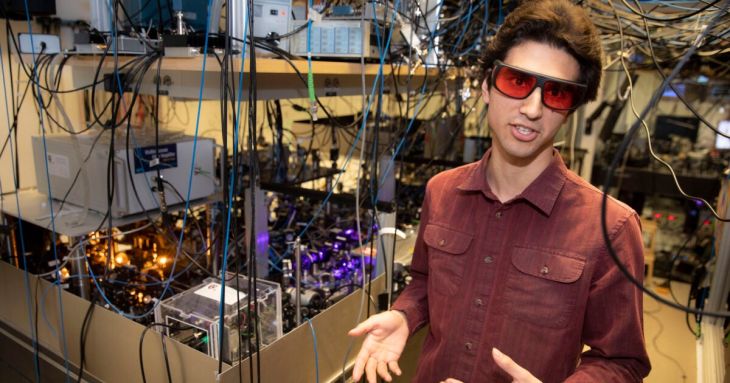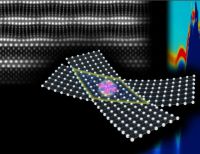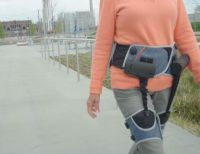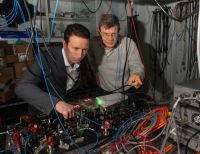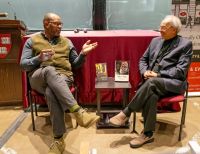This semester, 11 students, including Lopez, have been settling in as the first-ever cohort. Since September, they have started making Harvard their home and grappling with their studies in quantum information, systems, materials, and engineering.
The hope is that the extensive research experience they receive — combined with coursework and the mentorship embedded in the program — will help give them a broad and well-rounded education to go on to careers in quantum, whether as an educator in academia, or developing next-level systems and applications as a researcher at a university, a national laboratory, or in industry.
“When you have a new intellectual area it’s a good idea to train students in it and to come up with a curriculum that’s really tailored to that area — in this case: an understanding of the engineering and the science behind new quantum technologies,” said John Doyle, Henry B. Silsbee Professor of Physics and co-director of the Harvard Quantum Initiative, of which the new program is a part. “You develop these new ideas into a real firm bedrock on which students can go on to do whatever they want to do.”
Quantum mechanics and technology cut across disciplines. Advances in the field promise to usher in real-world breakthroughs in health care, quantum computing infrastructure, cyber security, drug development, climate-change prediction, machine learning, communication technologies, and financial services. The backgrounds of students who have been accepted into the program reflect that diversity — they range from physics and computer science to chemistry, electrical engineering, and math.
The well-rounded curriculum on offer was one of the driving factors for many of the students enrolling. In fact Quynh Nguyen, an international student from Vietnam who studied physics and computer science as an undergrad at MIT, said that the interdisciplinary nature of the field is what makes him so passionate about it.
“There are just so many questions to explore,” Nguyen said.
As a part of the program, he hopes to learn more about quantum information and algorithms and explore the capabilities of quantum systems such as the programmable quantum simulator being worked on in the lab of physics professor Mikhail Lukin, work that will eventually lead to a new world of ultra-fast computing.
A major focus of the new program is research experience. Along with rigorous course loads, students begin lab rotations in the first year and continue that through the rest of the program. They are also strongly encouraged to pursue cross-disciplinary research and industry internships. The idea is to give students an understanding of how research is done in different labs.
Some of the students’ research falls on the side of theory, like Nguyen’s work. Other research is more experimental, like Lopez’s work with lasers. Youqi Gang, who’s exploring experimental platforms for quantum simulation and quantum computation, is doing her first rotation in Markus Greiner’s lab studying ultracold quantum gases. Gang is gradually learning to operate the many optics, electronics, and control systems the lab uses to cool and manipulate atoms.
“The equipment is very complicated,” Gang said. “We have many different laser beams and everything needs to be very well aligned … and we have to do some day-to-day alignments and calibrations. People have put in a lot of thought about how to optimize the equipment. It’s a very cool process to be able to kind of get familiar with such a complicated machine and learn how to use it.”
Students in the program will receive their degree from the Graduate School of Arts and Sciences. The faculty for the Ph.D. program are drawn from the departments of Physics and of Chemistry and Chemical Biology in the Division of Science and the Harvard John A. Paulson School for Engineering and Applied Sciences. Students say the different class options offer them the chance to explore quantum science across the disciplines.
Nazli Ugur Koyluoglu, an international student from Istanbul, for example, is taking two very different classes this semester: Physics 271, which covers topics in quantum information, and Physics 295a, which looks at quantum theory applied to solid-state physics.
When not in class or research labs, students often can be found in the designated office space set up for them on the fifth floor of the Laboratory for Integrated Science and Engineering building. The large area is divided into two shared offices with working stations in each section and a big meeting room.
The meeting space is where students gather for weekly lunches and host weekly journal clubs where they present on different topics in quantum science, whether it’s something in a scientific journal that got their attention, something they themselves are studying, or a theory or experiment someone wants to learn more about.
The efforts have helped them quickly develop into a tight-knit community.
“It’s helped us start creating a culture for the program,” Koyluoglu said. “It’s constantly being up to date about each other’s work, which is really enlightening and helps us find out the different paths and the different questions that people are thinking about.”
HQI administrators for the Ph.D. program anticipate enrolling up to 60 students in the program in the future.
“The first cohort of students in the program are exceptional in their talents, vision, and enthusiasm in embracing a ‘quantum future,’” said Evelyn L. Hu, the Tarr-Coyne Professor of Electrical Engineering and Applied Science at SEAS and co-director of the Harvard Quantum Initiative. “My hopes are that the program and its students continue to build on this strong platform: diverse and multifaceted in its outlook and opportunities, while maintaining a strong sense of community even as the program expands.”
